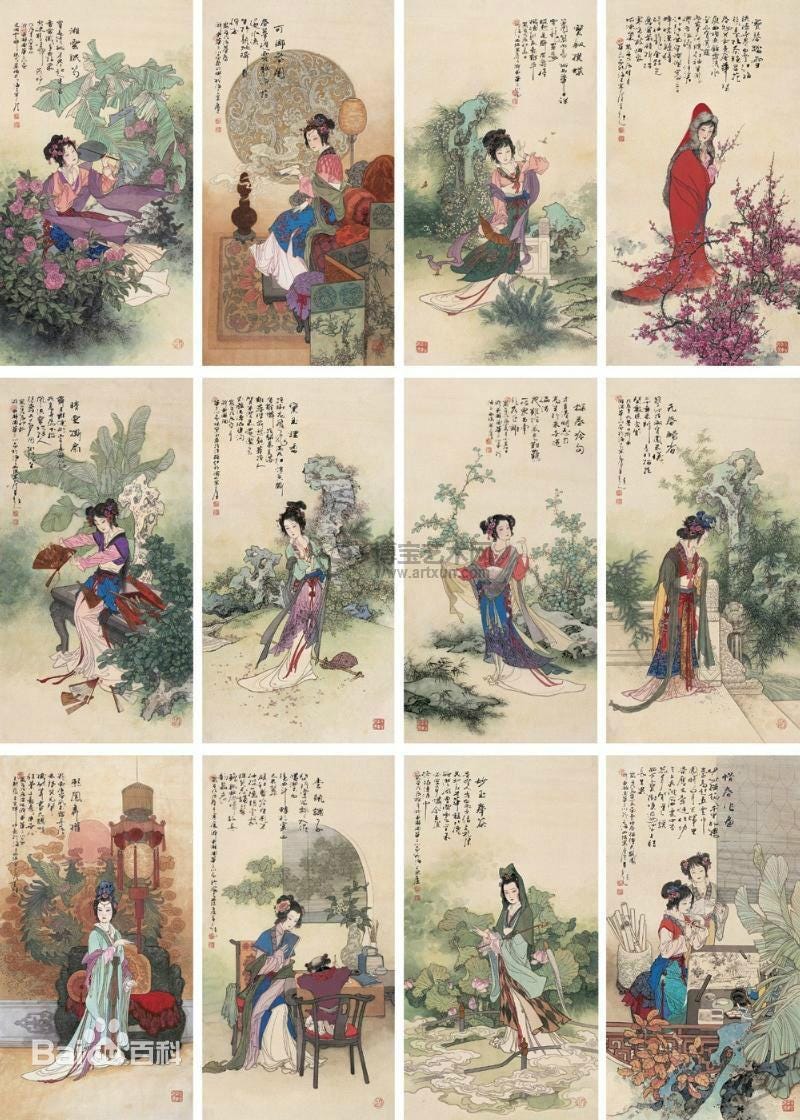So What Gives?
If you’re like me, you’re probably wondering what in the world is up with all these poems.
Unfortunately, we’re at that part of the book.
Dream of the Red Chamber is largely driven by poetry. That’s part of the beauty of the book in the original Chinese. There are all sorts of subtle clues and hints in poems that tell us a lot about the personalities of each character, predict the things that are going to happen to them, and shed some insight into the true thoughts and opinions of the author, Cao Xueqin.
They’re also a real pain in the neck to translate.
Not only that, but they create a really awkward narrative. Chapter 5 is the chapter of poetry, and we’re not quite halfway done with the first round of predictive poems. And the story itself hasn’t really started yet.
There are two major problems here:
Many of the characters mentioned in the poems, such as the one we read about yesterday, haven’t even been introduced yet.
Most modern readers feel bored with all this poetry and want to just get on with it.
Actually, I should probably change that second point. I haven’t seen any evidence that even ancient readers liked having all this poetry thrown at them all at once. The difference, of course, is that you didn’t have AI chat bots and television channels and other things to distract you back in those days.
It’s worth it to get through all of this stuff, though, even if I can’t really tell you what’s going on quite yet. The beauty of Dream of the Red Chamber largely lies in these poetic descriptions, even though they can be frustrating to read.
And I’m going to keep the slow pace through these poems to ensure that we don’t skip over anything or miss anything. After all, a lot of the controversy over how this book was constructed comes from these very poems. We want to make sure that we understand them thoroughly to figure out what all the hubub is about.



